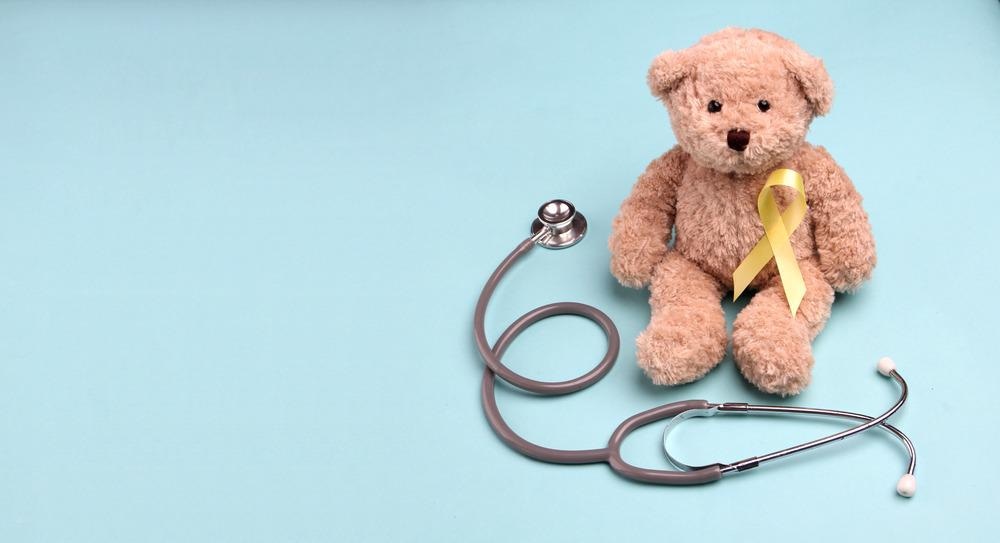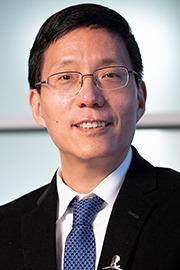I’m an associate member of the faculty at St. Jude Children’s Research Hospital, with a primary appointment with the Department of Epidemiology and Cancer Control and a secondary appointment with the Department of Computational Biology. My aging biomarker research was originally inspired by my colleague, Dr. Kiri Ness, who was one of the first to report the aging acceleration phenomenon among survivors of childhood cancer.
Over the last couple of years, we have collaborated and published our research demonstrating that aging biomarkers including leukocyte telomere length (https://aacrjournals.org/clincancerres/article/26/10/2362/82443/Shortened-Leukocyte-Telomere-Length-Associates ) and epigenetic age (https://academic.oup.com/jnci/article-abstract/113/5/597/5911122?redirectedFrom=fulltext&login=false ) are implicated in age acceleration. This latest publication is a third one along the line of my focused aging research.
Despite the majority of children in the US surviving cancer, some children can be left with diseases typically observed in older adults and why this occurs is not fully understood. Why is this?
On average, age-related chronic health conditions occur much earlier among survivors than in the non-cancer general population. For example, a survivor at age of 35 years may be comparable to a non-cancer individual at age of 50 years regarding the risk of developing cardiovascular disease. However, not all survivors showed the same level of aging acceleration and hence the risk.
We use an aging biomarker (e.g., epigenetic age) to objectively measure the biological age of each survivor and try to show that biological aging may account for the difference from one survivor to the other in terms of developing age-related chronic diseases.

Image Credit: Justinboat.29/Shutterstock.com
You have previously evaluated non-genetic risk factors for this accelerated aging. What did you discover from this previous research and why did your team choose to focus on the underlying genetic factors this time?
Our previous research showed that prior cancer treatment exposures and health behaviors would affect accelerated aging. These are non-genetic factors and can be used in identifying survivors with higher accelerated aging. For example, a survivor previously treated with irradiation to the chest or adopted an unhealthy lifestyle.
From the literature, we know that biological aging is also partially determined by inherited genetics. So, we conducted this research to search for genetic factors. In the future, we will be able to utilize both genetic factors and non-genetic factors to improve the precision in the identification of survivors with higher accelerated aging.
In your latest research, you investigated accelerated aging in pediatric cancer survivors. Can you describe how you carried out your latest research and what you discovered?
We took advantage of the preexisting whole-genome sequencing data and employed a genome-wide association study (GWAS) approach to agnostically search genetic variations that are strongly correlated with epigenetic age acceleration.
We identified two statistically significant genetic markers, with one mapped to the SELP gene which encodes P-selectin, and the other mapped to the HLA region which encodes genes that are important for immune functions.
In your research, you used data from childhood cancer survivors enrolled in the St. Jude Lifetime Cohort Study (SJLIFE). How important are datasets like this in furthering our understanding of disease and illness?
It is critically important to have a resource like the St. Jude Lifetime Cohort Study to allow investigators to perform survivorship research so we can understand the long-term effects of treatment toxicity, accelerated aging trajectories, as well as the pathophysiology of the chronic disease development.
What effects does this accelerated chronological age have on these pediatric cancer survivors?
Accelerated aging will lead to early-onset of age-related chronic health conditions and premature mortality among pediatric cancer survivors.
St. Jude Cloud: A pediatric genomic data resource for the scientific community
Do you believe that your research could be used to help us identify survivors at a high risk of accelerated aging before any symptoms develop? What advantages does this have not only for healthcare professionals but the patients themselves also?
Yes, I do. However, we should expand our research from single-time point to multi-time points (i.e., measuring epigenetic age and chronic health conditions longitudinally) to provide evidence supporting the temporal association. This will ultimately realize the precision preventive medicine for healthcare professionals to discuss and implement intervention strategies with the patients to slow down the aging process and hence prevent aging-related diseases.
The results of your latest study are publicly available for other researchers in the St. Jude Cloud? Why have you decided to make your results publicly available? What advantages does this have in accelerating future research?
The data we generated and used in this study is available to the scientific community, so other colleagues in the same field would be able to access the data to develop novel methods and perform their own analysis.
St. Jude Cloud has been an excellent platform for our data sharing, which is not only easily accessible but also ensures the privacy of our patients is adequately protected.
The ongoing COVID-19 pandemic has highlighted the importance of collaboration within research. How important was collaboration to this research?
This project was initiated and completed during the pandemic. Most of the people involved had to work remotely. It is indeed quite challenging, but we accomplished it by working together virtually. Research like this needs different expertise, and we formed a multi-disciplinary team including an epidemiologist, computational biologist, and biostatistician.
What are the next steps for your research?
We plan to do further observational studies to examine if aging biomarkers can be predictive of healthspan and lifespan among survivors of childhood cancer. We also plan to design intervention trials targeting aging biomarkers.
I anticipate this may ultimately lead to a paradigm shift in survivorship research and care: focusing on aging and extending healthspan instead of compressing a specific chronic disease.
About Dr. Zhaoming Wang
I’m currently serving as a Co-Chair of the Genetics and Genomics Working Group for the Cancer Control and Survivorship Program under the Cancer Center at St. Jude Children’s Research Hospital. My research has been focused on three related but progressive areas: 1) Genetic epidemiology of cancers (primary and subsequent); 2) Biomarker discovery for late effects of childhood cancer survivors, and 3) Omics-based precision preventive medicine.
I established myself as an expert in cancer germline genetics during my tenure as bioinformatics group leader in the Division of Cancer Epidemiology and Genetics at the National Cancer Institute. One of my most impactful contributions to the field of cancer epidemiology and genetics is designing the OncoArray for the Genetic Associations and Mechanisms in Oncology consortium in 2013, which led to a series of major publications around 2017.
After I joined St. Jude in 2015, I expanded into aging biomarker research on pediatric cancer survivors who are experiencing an acceleration of aging and suffering from a high burden of treatment- and aging-related chronic health conditions. In 2018, I led the ground-breaking publication on genetic susceptibility to second cancers in the Journal of Clinical Oncology and followed with a second major paper on monogenic and polygenic risk to subsequent breast cancer in Clinical Cancer Research. Since 2007, I have been an author on 190+ publications with 30,000+ citations.